“Pulse. Breath. Voice. Movement”
In the 2022/23 academic year, Unfolding Theatre embarked upon an artistic collaboration with Cragside Primary School.
Alex Elliott, under the guise of The Curious Visitor, spent time in residence with the aim of understanding and capturing the school's unique energy and rhythms throughout the seasons. Students and staff from Cragside had the chance to contribute throughout the year to the project.
The collaborative works that have resulted capture the spirit of this contribution. From musical recordings, sound installations and videos, to written and spoken narratives, the material reflects almost a year of observation, questioning and conversation.
We are grateful to all of those who made Alex feel welcome and valued and hope that this is just the beginning of our creative journey.
Find out what The Curious Visitor noticed in:
“Schools, in their structure and organisation can do more than simply reflect the society we have; they can be the precursor of the kind of society that we wish to have”
Autumn: Pulse
Every organism has a pulse. It reflects both stasis and change.
It quickly became clear that Cragside Primary is not just a school, but a living, breathing organism. Complex and dynamic, Cragside relies on many moving parts to function. A great deal of effort is required to maintain the rhythm and pulse of the school. This effort begins well before the school day begins and continues in back bedrooms and home offices, via email and text. Activities and initiatives are planned months in advance and the momentum is never lost. It cannot be lost. This is a place of constant flux.
One of the first people I spoke to was Mick Briganti, the facilities manager. We talked about Nature and waste and he introduced me to the pigeons that he had raced in the past. We spent hours in conversation over the course of the residency. Having been here for 21 years, Mick knows the place inside out. He has a uniquely personal relationship with the building, the staff, and in particular some of the children in the school.
I started to observe and record the sounds that shape the school day and then went back to spend some time with the pigeons. The young birds that were born earlier in the year rely on the knowledge of the older racers to bank and turn effectively. Sometimes they veer off and find themselves detached from the flock. They slowly improve, honing their skills through observation, trial and error, and sheer determination. Within a matter of weeks, they are an integral part of the flock.
Watching the young arrivals in Reception reminded me what a luxury it is to spend time exploring through play. Those first few weeks are all about exploration and trial and error and forging new friendships through imagination.
All of this prompted an examination that lead to Autumn.
All of the sounds you hear were captured within the confines of the school.
Winter: Breath
“We are here to embrace rather than to conquer the world”
-Patsy Hallen
We don’t have winters now. That’s what people say. That’s what I have heard myself saying. Lots of rain, weeks of grey skies and poor light, and not even a hint of blue sky. It gets me down.
I don’t like these new seasons that merge into one another and leave you feeling confused and disorientated.
Mick Briganti, Cragside’s Facilities Manager, would point out that there are always cycles in Nature and that some things will return to the old familiar ways eventually, but I can’t help feeling that we are witnessing shifts that not even the wisest minds can fully understand and that we will witness many more.
We have interfered with many of Nature’s cycles, often without realising the full impact of our actions, and we are experiencing events that make it very clear that we are not in charge and never will be.
Silver Roots is a response to that perceptual imbalance. There are ancient connections between organisms that we are only now coming to understand. Mycelial networks communicate information to trees about environmental threats. Plants and animals are acutely aware of the shifts in temperature and climate and the contamination in our environment and are responding accordingly. Some are disappearing, others are adapting and are finding ways to thrive.
We may not be as lithe in our response.
Small Boats
A random encounter with a taxi driver calls into question the definition of belonging. For all of us home is important, but where is our home?
Winter is a dangerous time. We were asked to look in on our older and more vulnerable neighbours and ensure that they were managing. There were days of intense cold and people were naturally worried about their household bills. For the first time in a long time the term “heat or eat” began to appear widely. Some responded by creating “warm spaces” open to all.
Organisations opened their doors and welcomed those for whom putting the heating on was not an option. Libraries, churches and mosques took on a wider function, and we were forced to accept that we are not all equal. We do not live in a society where everyone is cared for. This is a place where poverty is closer to the surface than we are prepared to admit. Cragside’s recent Poverty Audit made it clear that some families were finding life challenging and the decision was made to reduce the pressure on those families within the school, especially when it came to extracurricular events.
A recent study has concluded that parts of the North East are seeing life expectancy decrease. Health inequalities are as marked as they were over ten years ago when the Marmot report was published, and those inequalities impact education, work, and our quality of life.
We have been told repeatedly that we live in a progressive, prosperous country. The last year has made it clear that there are many challenges to overcome before we can make that claim.
The piece Small Boats was inspired by a brief ride in the back of a cab on a wintry night.
Spring: Voice
Part of it is observing oneself more impersonally… When you go out into the woods and you look at trees, you see all these different trees. And some of them are bent, and some of them are straight, and some of them are evergreens, and some of them are whatever. And you look at the tree and you allow it. You see why it is the way it is. You sort of understand that it didn’t get enough light, and so it turned that way. And you don’t get all emotional about it. You just allow it. You appreciate the tree.
The minute you get near humans, you lose all that. And you are constantly saying, “You’re too this, or I’m too this.” That judging mind comes in. And so I practice turning people into trees. Which means appreciating them just the way they are.
- Ram Dass in The Marginalian
Children’s voices appear throughout the work and it is rare not to hear the sound of children talking and enjoying themselves. The schoolyard is always particularly lively but throughout the school day musical instruments are taken out of cases, lovingly assembled and plucked or bowed or blown.
Music is a really important part of school life. From Kodaly singing in Reception, which aims to introduce the rudiments of music in an intuitve way, to the KS1 and KS2 assemblies as well as the choirs that rehearse regularly and go out to sing at many events throughout the school year. Some of the musicians in the school have contributed to the soundscapes we have made and the following is a recording of the KS1 choir singing an Anna Tabbush song, Harbour.
Harbour is just one example of many songs they sing that reflect the welcoming nature of the school.
The KS1 choir of Cragside Primary sings 'Harbour' by Anna Tabbush.
Summer: Movement
This is my last week in the school.
It has not escaped my notice that this last time last year I was coming to terms with entering a new environment, as the Curious Visitor. The term was coined as I prepared for that first morning. My role had been created through discussion between the school and Unfolding Theatre and was the result of a very generous offer. Come to Cragside, observe, interact and draw what conclusions you will and then respond in whatever way you see fit.
No pressure, no expectation of a fixed outcome. Get to know this place and then reflect your findings through your practice.
Those first three days were a chance to try and understand how this place works. I speak from within the structure and after almost exactly a year of interaction, and so I feel able to describe this place in some detail, although I am as aware as I was then that I am an outsider.
Back then the SATs had just arrived and despite a delay the children and staff were coming to terms with the results. The delay had put everyone on edge and it felt best to step back and observe from a respectful distance.
However, by the end of that first brief visit it was clear that I wanted to respond to this very generous offer and would need time and space to produce something worthwhile. There was a verbal contract to be clear and honest and communicate my thoughts and reflections.
This was articulated a couple of days later in the form of a brief analysis of Cragside as a living entity. The carapace might be brick and glass and slate but I wanted to reflect the pulse, breath and movement I detected as soon as I entered the building. This is an organism, complex and full of life, with its own inexorable momentum.
Bee hives generate heat. The average temperature, even in winter, is 27 degrees Celsius. The ceaseless activity required to maintain the hive, the impulse to explore, and nurture and sustain emerging life, makes for a place of ceaseless activity. Cragside had and still has that same drive and kinetic energy. This is a place that only rests when it is emptied of its human inhabitants.
After a hot but brief summer, I returned to the school armed with some ideas and bits of recording equipment as well as an intense sense of curiosity. A whole academic year. That’s a long time. That’s nearly ten months. That’s loads of time.
The high vis I decorated with a Sharpie before I set out from home was left over from another project and I thought it would be a good way to prompt questions as I made my way around the school. I drew question marks and the word ‘curiosity’ in several languages on my high vis and made my way into the school. I was going to speak at the KS1 and KS2 assemblies and I didn’t really know what I was going to say but I had promised myself I would try to be as open and honest as I could. Stay in the moment, listen, and respond. Don’t be anything you are not.
Then, as now, the school was full of activity. Cutting and pasting, with guillotines and glue sticks, photocopiers whirring, as all manner of materials were generated. Registers and plastic boxes filled with coloured wristbands made their way around the school. A lot of that activity was familiar from my own school days, children walking around the corridors and being greeted several times as they traced the familiar paths around this venerable building, which requires constant and careful maintenance. It is not a modern building. It is reminiscent of my time at primary school. I immediately felt welcome.
Many people I encountered in that first week were confused as to what I was going to be doing in the school. I was not always able to answer their questions as I myself didn’t know what shape the visits would take but everyone I spoke to was open and generous, and as has been said many times since then, welcoming. In these difficult times when many are urging us to be less welcoming I felt accepted. Whoever the Curious Visitor is and whatever it is they are going to be doing they are here and as such they are a part of us. We will get to know one another. Some of the awkwardness will disappear and who knows what will emerge.
I am wearing the same high vis I wore that week. I wear it not just as a reminder to those within the school that I am who I am, but also as a reminder to myself that the same commitment to be open and responsive and to remain true to the core idea that I made as I arrived in September 2022 remains in place.
The work I have produced in association with Garry Lydon, an Associate Artist at Unfolding Theatre, with the generous support of the staff and pupils of Cragside, reflects my genuine admiration for a remarkable school. I have been moved and inspired on many occasions during my residency, and I will leave knowing that this is a community that values humanity and kindness. Cragside regularly welcomes scores of young children and commits to doing all it can to safeguard, nurture, and educate those hedgehogs and badgers till they emerge with their Leavers’ hoodies, eager to see what the world has to offer.
Thank you all
The Curious Visitor
Exploring and Investigating
※
Daring to be Different
※
Collaborating
※
Crafting and Improving
※
Playing with Possibilities
※
Wondering and Questioning
※
Making Connections
※
Using Intuition
※
Exploring and Investigating ※ Daring to be Different ※ Collaborating ※ Crafting and Improving ※ Playing with Possibilities ※ Wondering and Questioning ※ Making Connections ※ Using Intuition ※
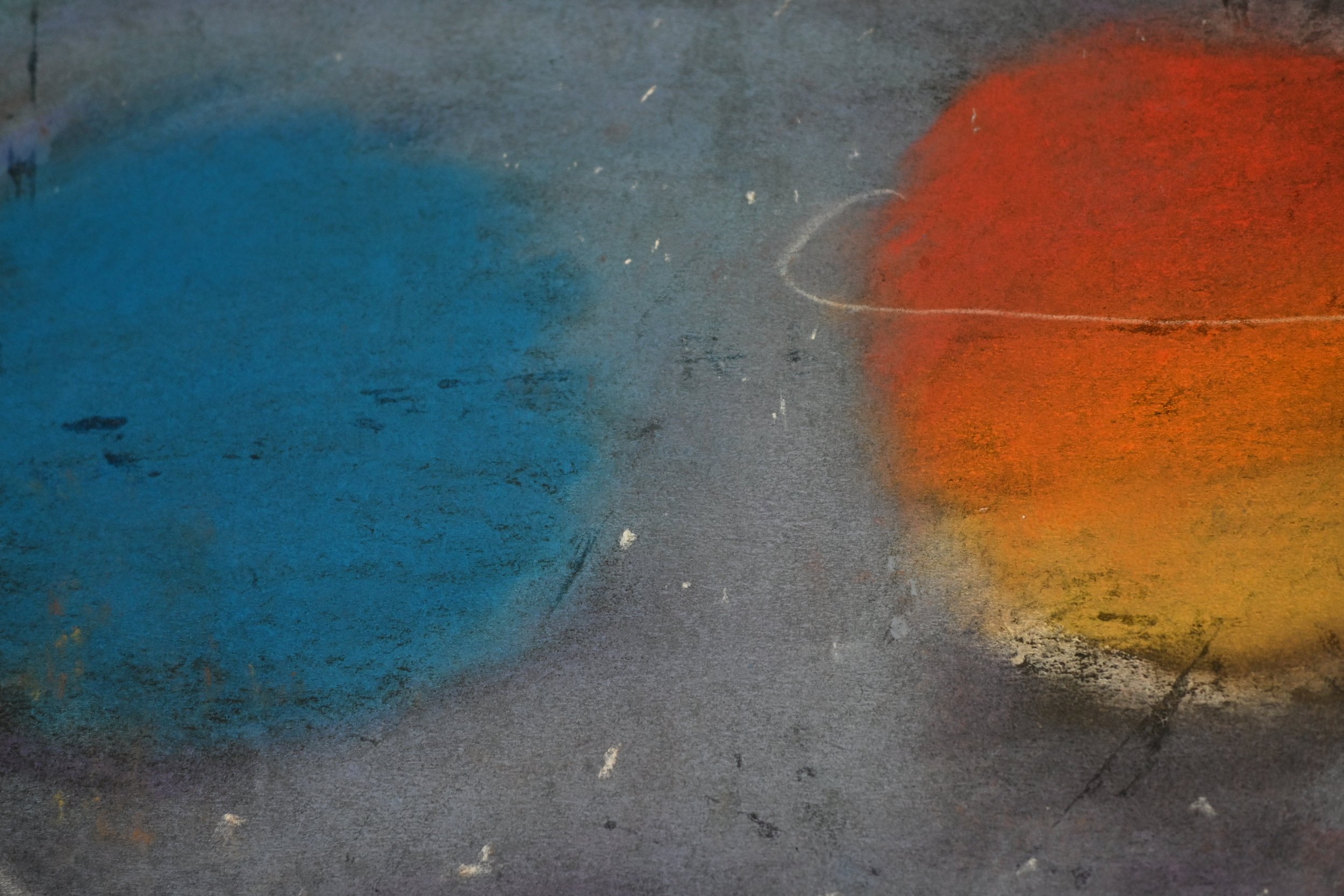
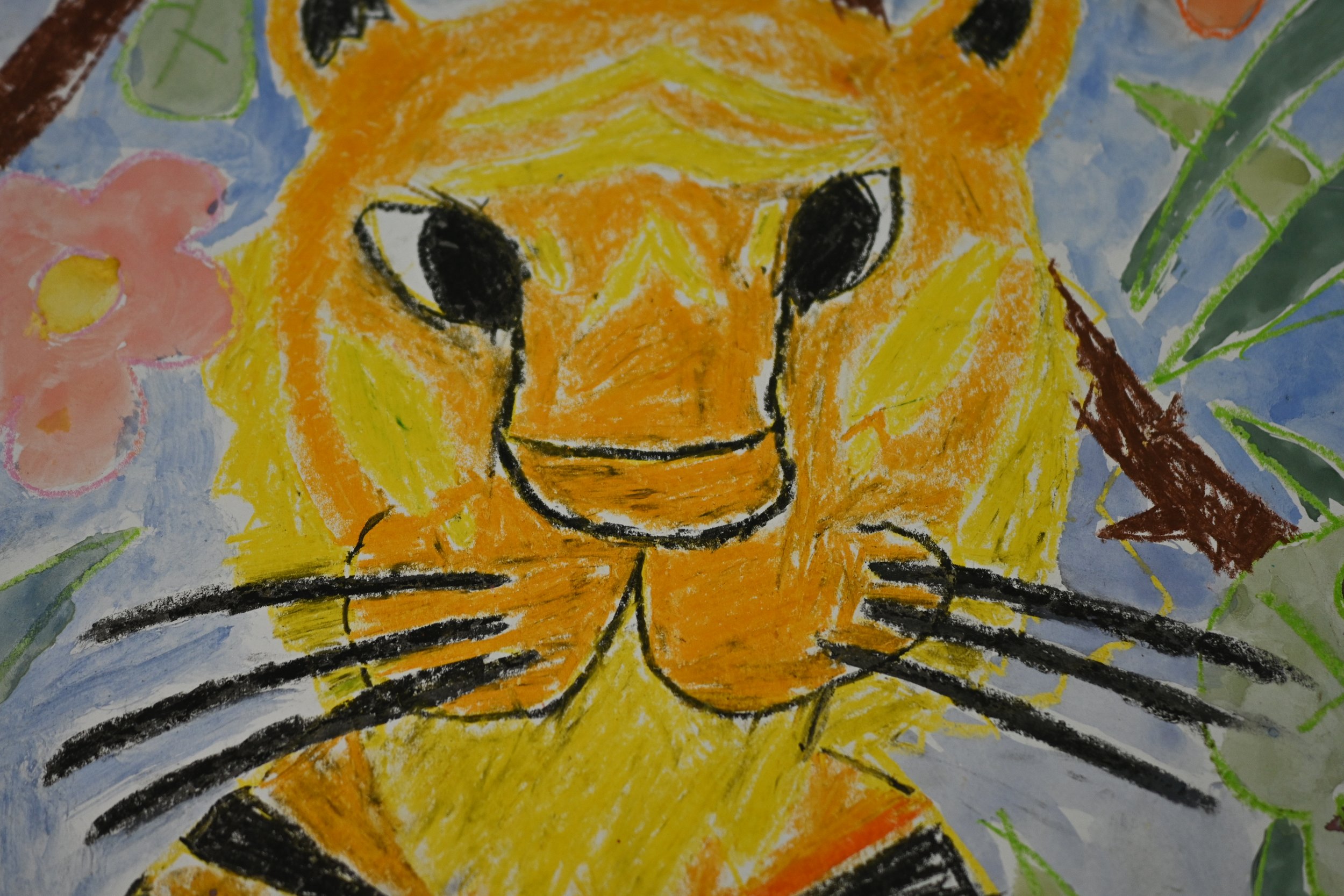

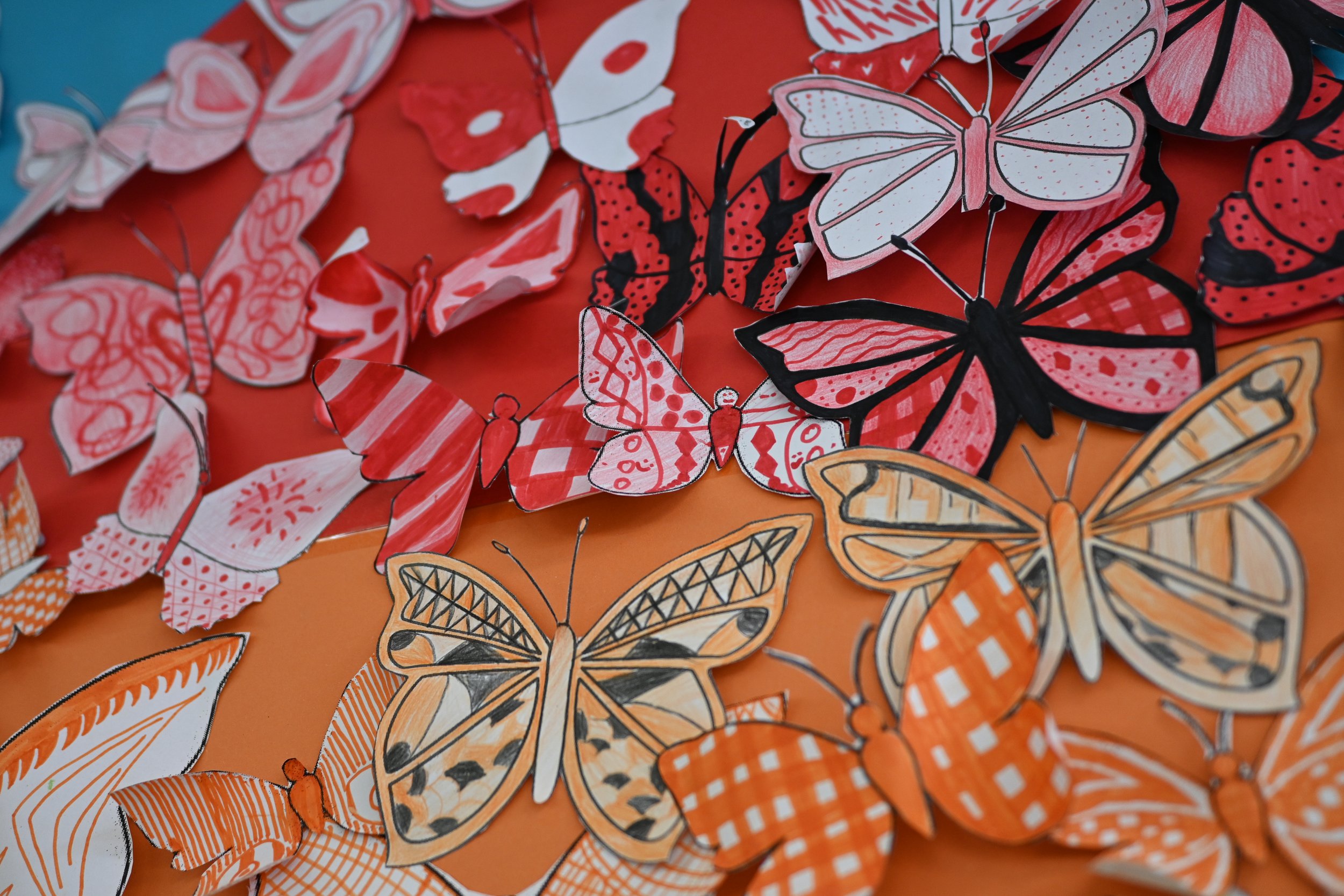
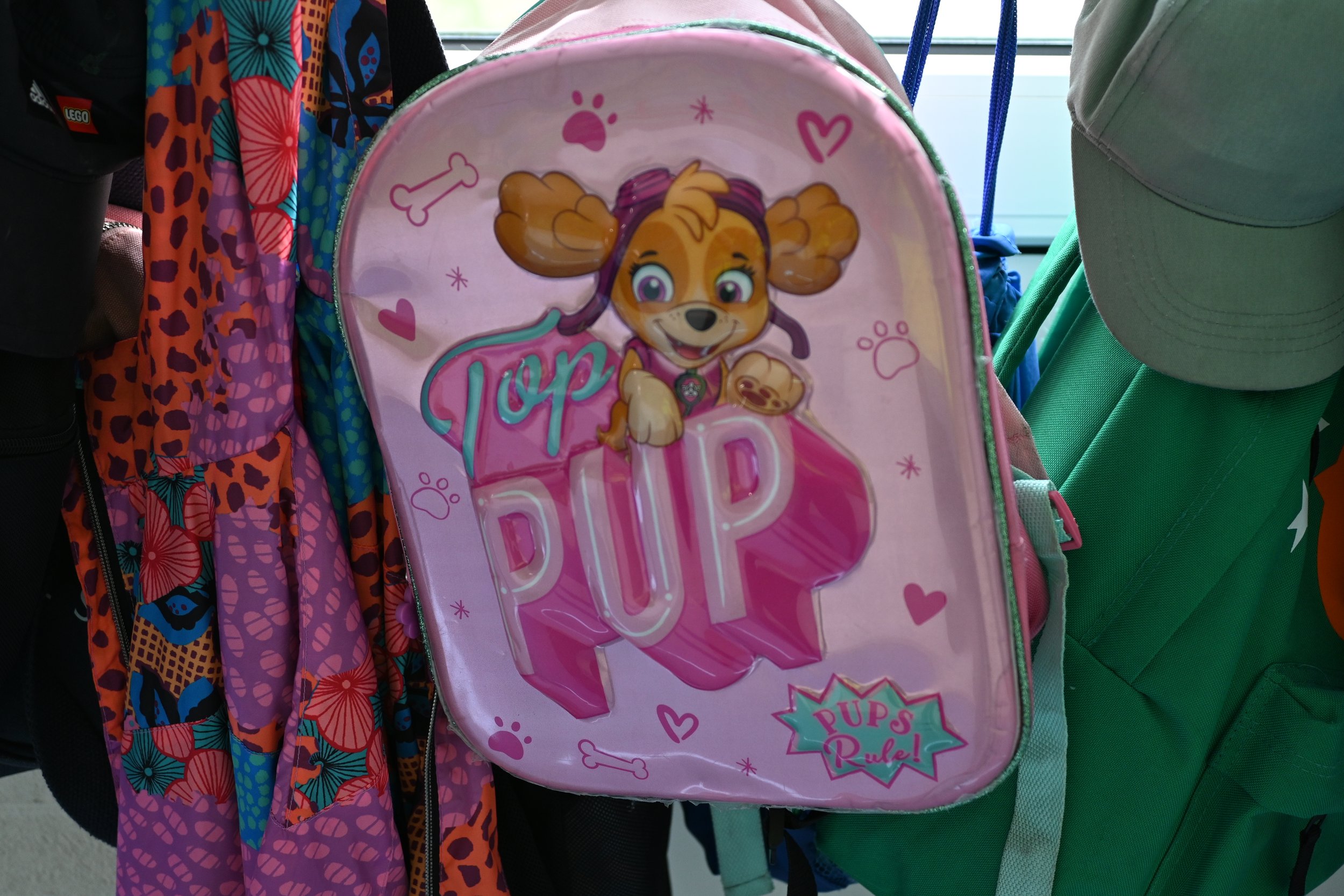
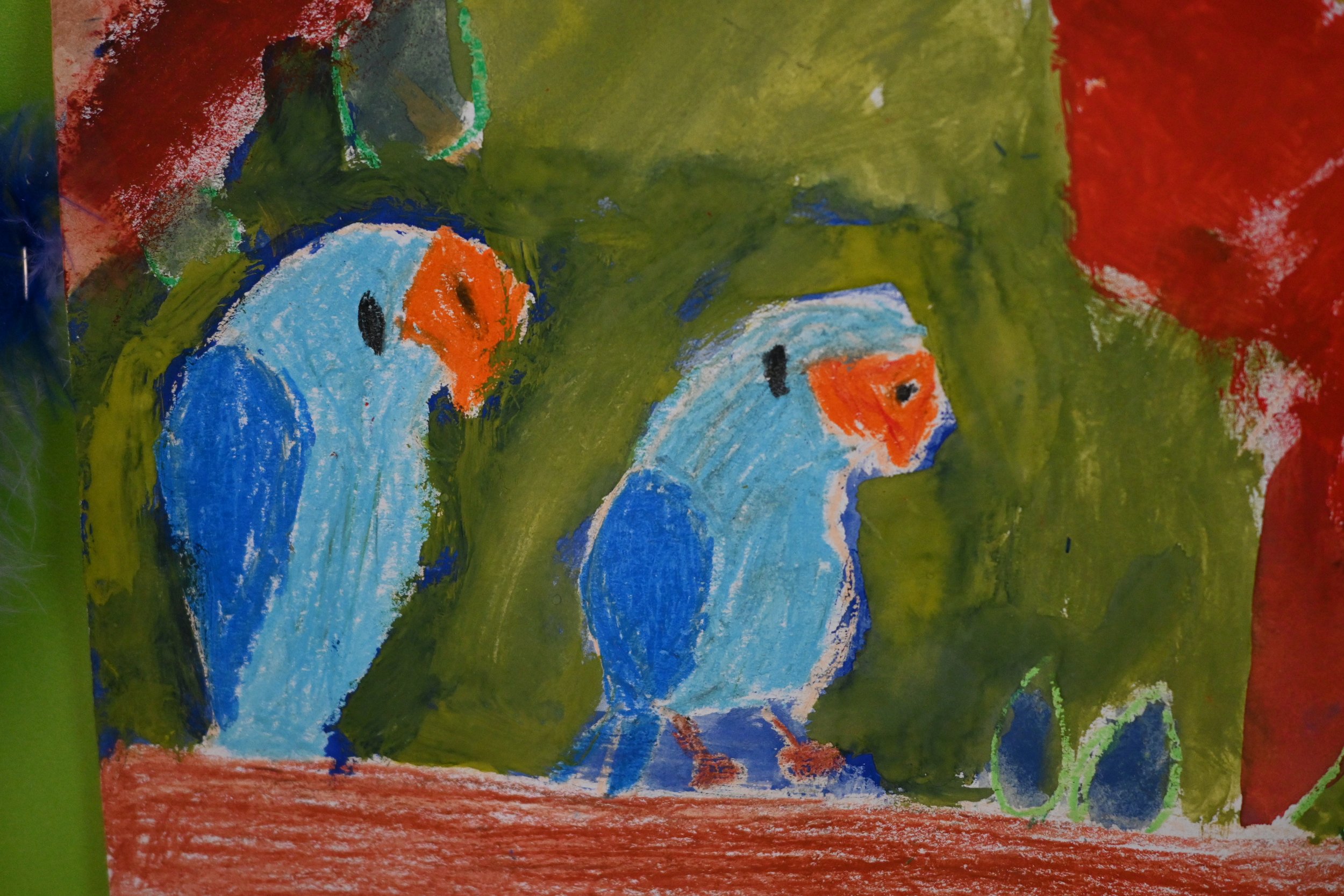
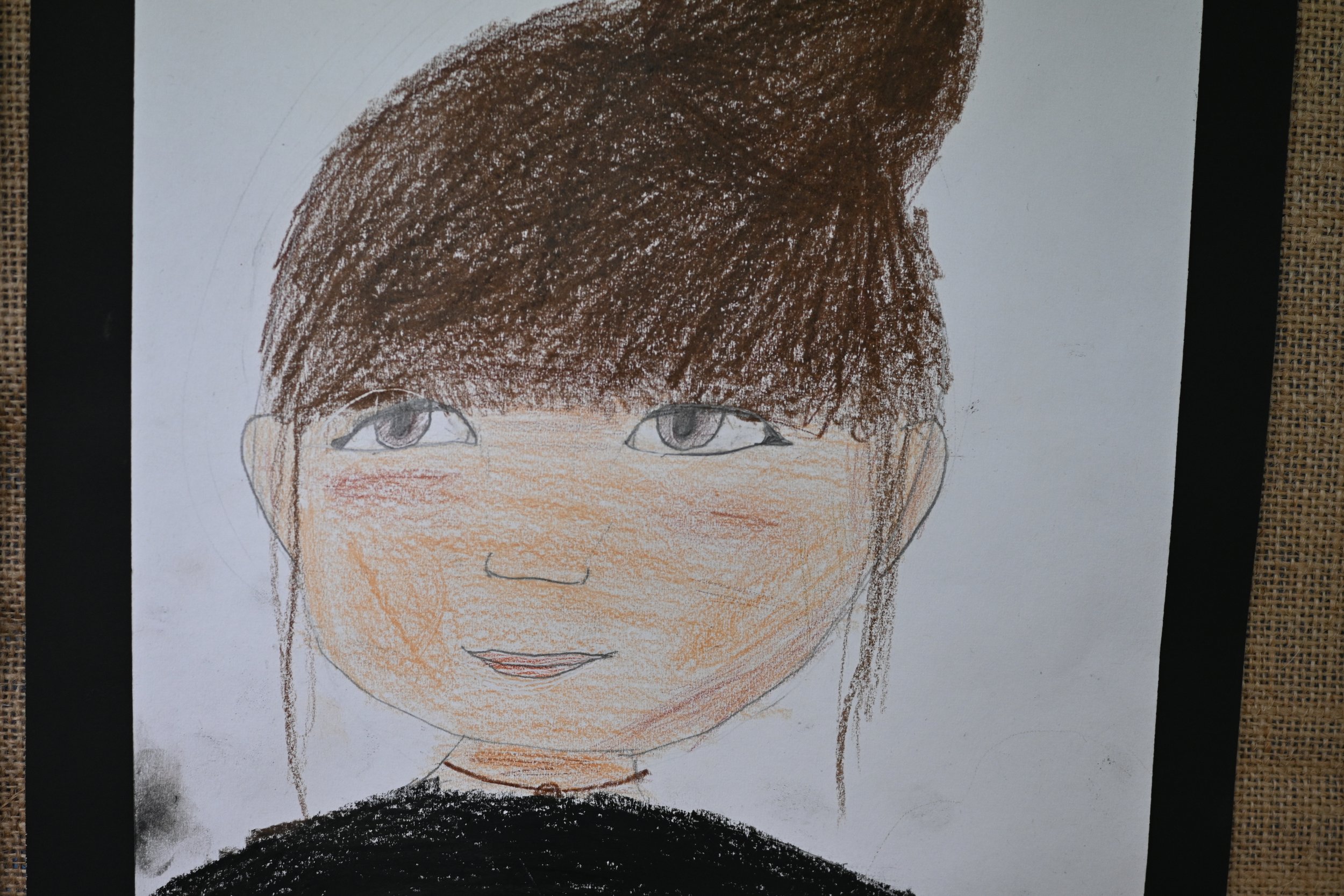
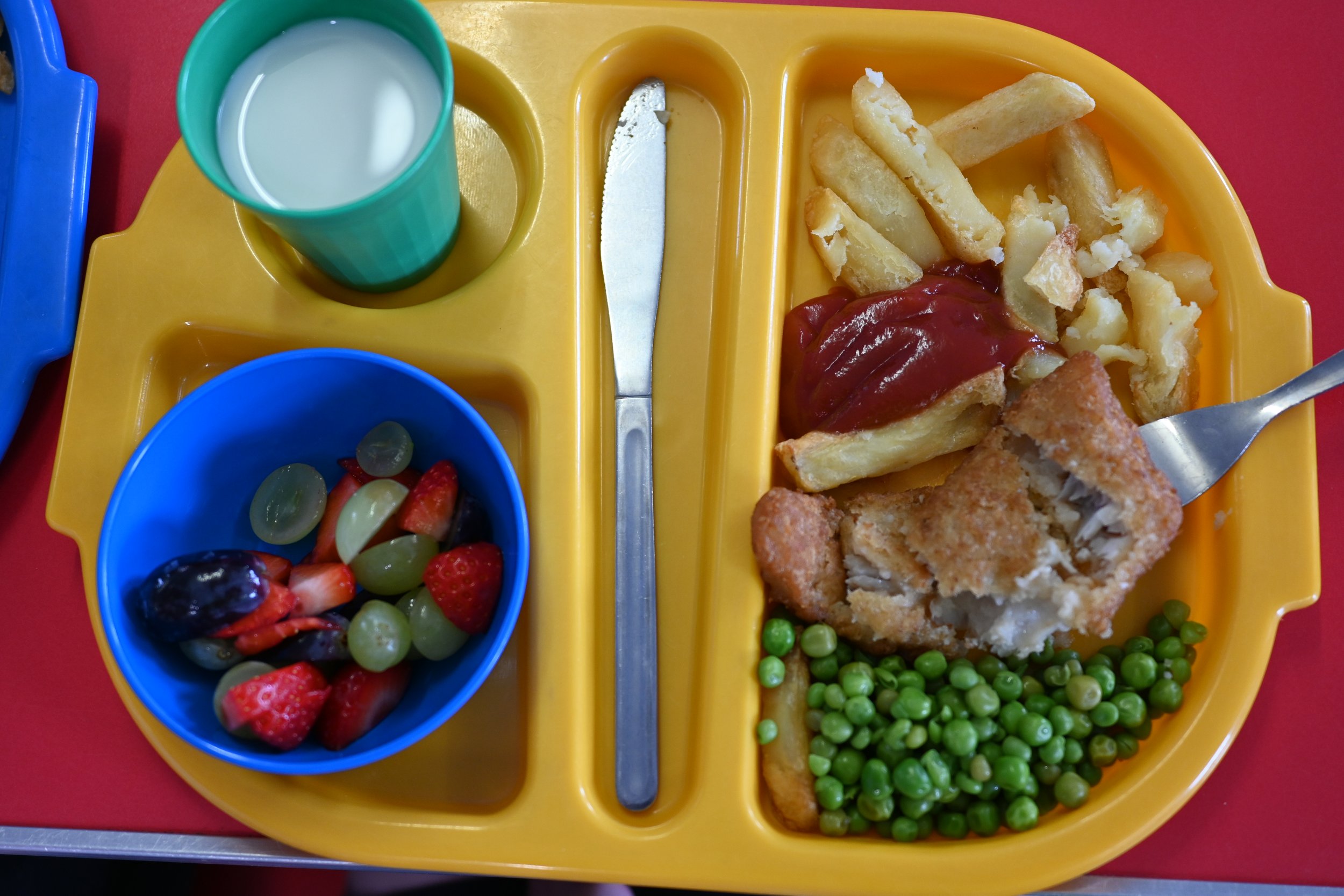

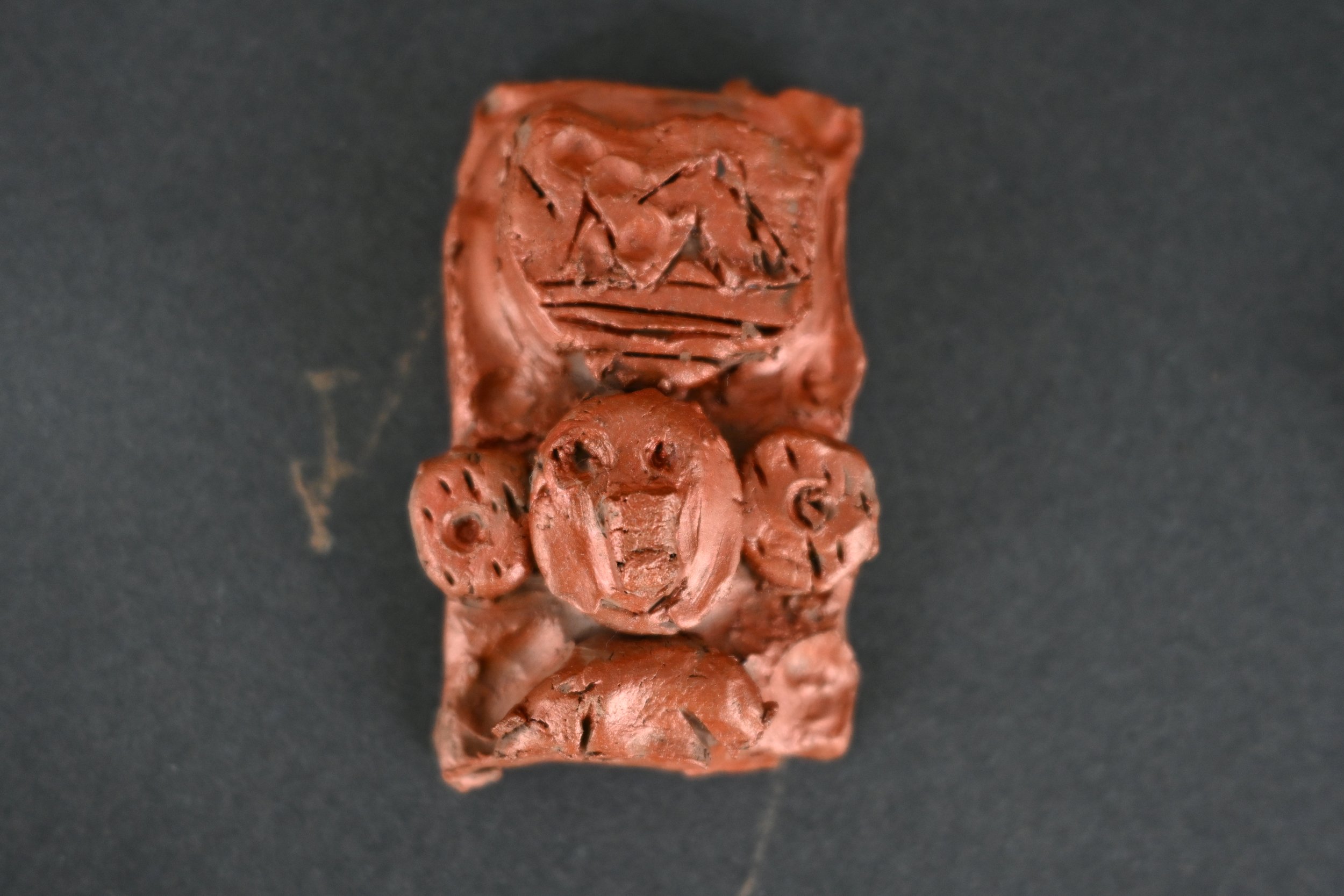
The Curious Visitor Creative Team
Alex Elliott
Garry Lydon
Michael Barrass
With particular thanks to the Senior Leadership Team of Cragside Primary School.
Made possible with funding from Arts Council England and North of Tyne Fund.



